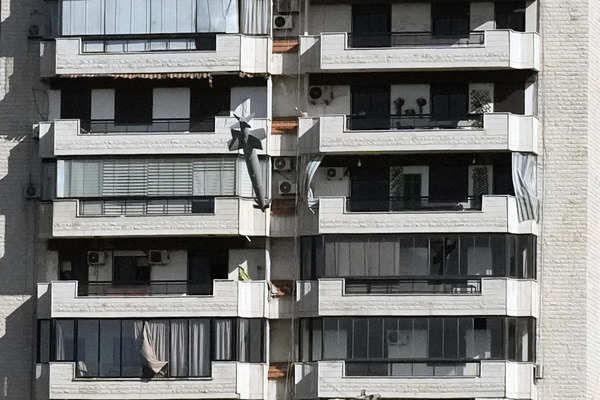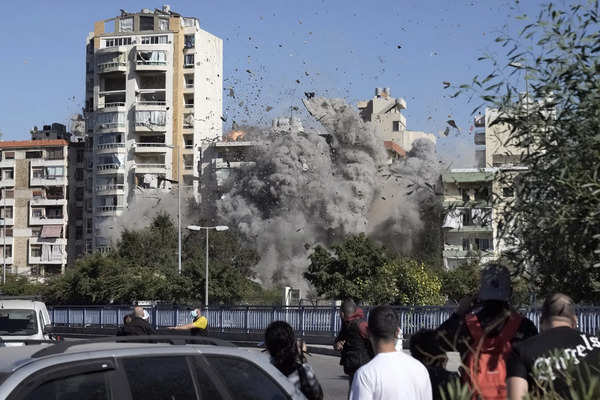As Israeli forces continue their campaign across Lebanon, a missile strike on a Beirut apartment building was documented in real-time by an Associated Press photographer. The dramatic images offer a chilling glimpse into the destructive power of modern warfare and the escalating tension in the region.
Bilal Hussein, a photographer from AP, took cover behind a large tree with his camera trained on an apartment building in Beirut that had been warned by Israeli forces of an impending strike.Moments later, a missile plunged from the sky, and Hussein’s lens captured the projectile just before it obliterated the structure.
“I heard the missile whistling toward the building and began filming,” Hussein said. The photos and videos captured the missile’s trajectory, the impact, and the billowing destruction—providing a visual testament to the speed and brutality of the attack.

The strike occurred just 40 minutes after an Israeli military spokesperson issued a warning in Arabic via social media, instructing residents of two buildings in the southern suburbs of Beirut to evacuate immediately. The message cryptically noted that the buildings were near “facilities associated with Hezbollah.”
This warning prompted a mass exodus from the bustling, densely populated neighborhood. By the time the missile struck, the building had been evacuated, and no casualties were reported.

Prior to the devastating hit, two smaller projectiles were launched at the roof in what is commonly referred to by Israel’s military as a “warning strike.” This practice, often used in Gaza, aims to give residents a chance to flee before the primary missile makes impact. When it came, the missile slammed into the lower floors of the building, reducing the structure to rubble in mere seconds.
Videos of the strike quickly circulated on social media, showing people fleeing as debris and smoke engulfed the area. One video captured a man shouting, “They targeted two buildings, not one,” as two explosions echoed through the neighborhood.
This attack is part of a broader Israeli military offensive in Lebanon, targeting Hezbollah strongholds. Over recent days, the Israeli Defense Forces (IDF) have launched strikes against various locations in the Lebanese capital, expanding their campaign to include financial targets. On Sunday night, multiple bank branches across Beirut were hit, allegedly to weaken Hezbollah’s financial infrastructure.
The strikes have sparked panic across the city, forcing hundreds of residents to flee their homes. IDF spokesman Daniel Hagari stated that these operations aim to target Hezbollah’s financial resources, specifically accusing the group of using buildings to store cash and gold.
A notable target of these strikes has been Sahel General Hospital, located in the Dahieh suburb, a known Hezbollah stronghold. The IDF claimed that a Hezbollah cash bunker was hidden beneath the hospital, though the facility’s director denied these allegations. While the IDF pledged not to strike the hospital directly, Dr. Fadi Alami, the hospital’s director, confirmed that they evacuated the premises as a precaution.
